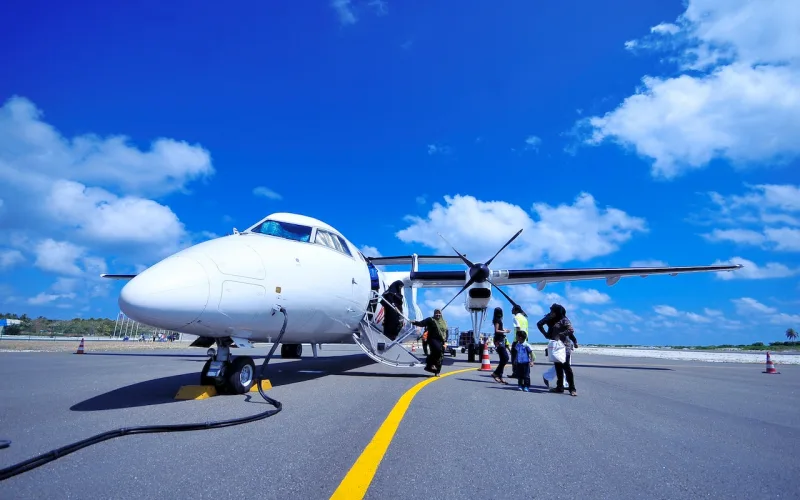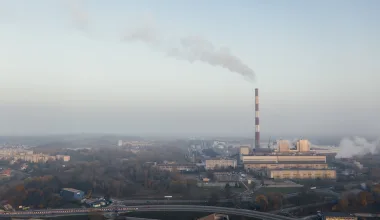Last Updated on June 1, 2023 by Ecologica Life
Private jets have long been associated with luxury, exclusivity, and wealth. However, as the global climate crisis intensifies, it is becoming increasingly clear that these symbols of privilege are also significant contributors to environmental degradation.
The recent protest organised by Greenpeace and other climate justice groups against Europe’s largest annual private jet fair in Geneva highlights the urgent need to address the environmental impact of private aviation. While the protest aimed to raise awareness and provoke change, it is crucial to evaluate its effectiveness and consider alternative methods to address the environmental consequences of private jets.
Table of Contents
Impact of Private Jets on Climate Change
The exponential growth of the private jet industry is deeply worrying. In the past two decades, the global fleet of private jets has more than doubled, and sales are expected to reach record levels this year.
This surge in private aviation places an immense burden on the planet, with private flights emitting around 50 times more CO2 per passenger kilometre than trains. These flights also contribute to high levels of particulate pollution and noise, both of which are harmful to human health, wellbeing, and the environment.
The impact of private jet emissions goes beyond local and regional effects. A study commissioned by Greenpeace CEE found that CO2 emissions from private jet traffic in Europe have reached record levels in recent years. Unfortunately, current legislation does not adequately address the greenhouse gas emissions from private jets and luxury transport. This failure perpetuates social and climate injustice by allowing a privileged minority to indulge in the most polluting and inequitable form of transport, while the majority bears the brunt of the climate crisis.
Greenpeace’s Protest in Geneva
Greenpeace’s protest aimed to highlight these issues and challenge the promotion of private jets at a time of growing social inequality. By peacefully occupying the jets on display at the business event and using banners with tobacco-style health warnings, the activists sought to highlight the toxicity of private jets and their detrimental impact on the planet. The protest also included public service announcements exposing the devastating effects of private aviation.
Was This Protest Effective?
Peaceful protest has historically played a key role in securing rights and driving social change, often over long periods of time. Take, for example, the establishment of the weekend as the norm. This was the result of persistent campaigning by trade unions and civil society over several decades from the late 1800s to the 1930s.
While the intentions behind the Geneva protest were noble, it is important to assess its effectiveness. Direct action and peaceful protest have historically been successful in drawing attention to important issues, but they can also polarise and create enemies for the climate change movement.
In this case, the protest may have inadvertently alienated some people who see private jets as an expression of personal freedom and success. While it is difficult to assess the impact of this protest, it is hard to imagine that this protest had any lasting effect on private jet legislation.
In order to avoid this polarization and encourage broader support for climate action, it is crucial to explore alternative methods that can effectively reduce the impact of private jets on climate change.
How Can Climate Change be Addressed Effectively?
One such approach could be to engage with policymakers and industry leaders to push for stricter regulations on private aviation emissions. Lobbying for the inclusion of private jets in key EU legislation on greenhouse gas emissions would be a significant step towards reducing the industry’s environmental impact.
In addition, promoting technological advances in aviation, such as the development of sustainable fuels and more fuel-efficient aircraft, can contribute to a greener future for private aviation.
Education and raising public awareness are also critical components in bringing about change. By disseminating accurate information about the environmental impact of private jets and highlighting the inequalities they perpetuate, it is possible to create a broader understanding of the issue. Encouraging individuals to make conscious choices about air travel, and to favour more sustainable alternatives where possible, can help reduce the demand for private aviation.
Furthermore, fostering dialogue and collaboration between climate justice groups, aviation industry stakeholders, and policy makers can lead to innovative solutions that address both the environmental impact of private jets and social inequalities.
We at ecologica.life don’t want to make enemies of Greenpeace or other environmental groups. We are trying to address the same global issues. We just want to open the discussion on what is the most effective way to take action. This is important because climate change is a pressing issue that requires immediate, collaborative action.
No one should be against the climate change movement because it is something that affects all of us. So we need to have open, honest conversations about it with everyone on board.








